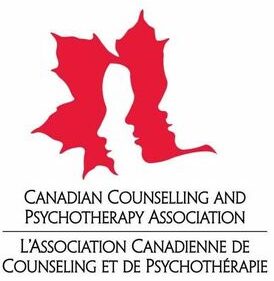ACT Therapy #1 – the Present Moment

The first of the 6 core principles of Acceptance and Commitment Therapy that I’d like to talk about is the connection with the present moment. I’m surprised that more ACT teachers and books do not start with this, as it seems the absolutely necessary building block for any therapy. The way I see it, one of the ways that we can accurately speak about the cause of all our suffering is simply our inability to remain connected to the present. When we identify those factors/ ideas/ patterns that prevent us from being fully present, we correctly identify the factors that are at the root of our neuroses. Anxiety, Depression, Substance use, compulsions – if you look closely all of these can be subtle avoidance strategies. What prevents you from being completely and only in this present moment? Take a look.
The mind is a double edged sword. On one hand, it allows us to problem solve abstract ideas that are not physically present – which enables us to figure out all the wonderful things that your dog can’t figure out. But on the other hand, we tend to get over identified with thinking and therefore spend our lives in an unreal place – either replaying the past or projecting possible futures. The problem is not that we do this – the problem is that we rarely, if ever, stop doing this. And that is where your dog can show you the way. Your dog is nothing but present. And look at his joy!
Your entire life exists in the present moment only. If I ask you if you are present, there will never be a time that you cannot say yes. But when we find aspects of our life and world to be unpleasant, we avoid being present with them and treat them as problems to be solved – and that is when we leave the felt experience of our living, and enter the realm of abstract thought. So if I ask you if you are present – while on one hand you may say yes – you may be answering only because you ‘know’ it is the right answer, and not because you are feeling the experience of it.
Therapy starts when we start contacting the present moment again – and all that comes with it. Our sorrows are felt experiences that, if we don’t honesty get in touch with, we cannot possibly process or change. Negative patterns persist when they get relegated to our subconsciousness – when we stop being aware of them. If you want to change any habit or pattern, you have to notice it first, and before you notice, you have to first be present.
There is no coincidence that one of the most popular therapeutic “techniques/ tools/ skills” is called “grounding” and is used and taught for everything from anxiety to anger to traumatic distress – and the first part of grounding is simply getting in touch with the moment.
Take a breath. Look around you. Connect with your senses. Feel your body, your pulse, the sound of the cars and the feel of the chair. Listen to your thoughts and just be aware of what is going on right this living moment.
Don’t try to change your experience, just feel whatever is there. Push your feet into the floor and give yourself a hug or even a pinch. There is a part of you that is always and only present – it is the very life of you – and we suffer when we are out of touch with that.
Think of your moments of highest joy, of ecstatic pleasure and fulfillment. Guaranteed – those are moments of heightened present moment contact – when for a blessed while you actually let your mind retract from its obsessions of the past and future. But we don’t have to wait for exceptional circumstances. We can learn to do this all the time!
My old mentor and friend Tom Compton speaks about a time when he was hit by a car and left maimed and with multiple fractures in the middle of the road. And though his life was possibly going to end, he was able to see that deep inside, there was still a part of him that was very aware, very connected, and untouchable by circumstance. It is a beautiful reminder, and always true. We don’t need a tragic accident to pull us into the moment. Ask yourself right now, “is there anything truly lacking in just this nanosecond?”
See how supported you are, how available you are to yourself. It is all right here, right now.
When you forget this, you will not feel as good as you can be. And you will not have true power to make new choices. There are a thousand reasons why you might have trouble connecting to this. And that is what we look at in therapy, and what some of the skills and homework is designed to do.
Really, your suffering and sorrows can be defined as those things which disconnect you from your real self, which, in the words of Jeff Foster, is not just in touch with the present moment, but actually is the present moment. That is all we ever could be.
And there is such freedom in that.






